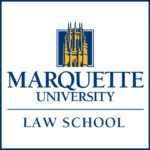 Public Interest Law Society (PILS) fellowships are more than summer jobs—they are immersive experiences that place students directly in the heart of legal practice and community need. PILS Fellows gain hands-on exposure to the challenges and responsibilities of lawyering, developing practical skills while also deepening their understanding of justice, equity, and advocacy. This experiential learning, even outside the curriculum, transforms classroom lessons into lived realities, shaping students into future lawyers who are both capable and committed to serving the public good.
Public Interest Law Society (PILS) fellowships are more than summer jobs—they are immersive experiences that place students directly in the heart of legal practice and community need. PILS Fellows gain hands-on exposure to the challenges and responsibilities of lawyering, developing practical skills while also deepening their understanding of justice, equity, and advocacy. This experiential learning, even outside the curriculum, transforms classroom lessons into lived realities, shaping students into future lawyers who are both capable and committed to serving the public good.
The summer of 2025 was nothing short of extraordinary for Marquette Law School’s Public Interest Law Society Fellows. Nineteen students devoted more than 6,650 hours of service across 12 public interest organizations and agencies. At a time when the need for public interest lawyers has never been greater, our Fellows stepped into the justice gaps—delivering life-changing legal help while also becoming the kind of justice-driven advocates our communities urgently need.
From eviction defense to immigration support, the Fellows witnessed both the power and the limitations of the legal system. “I worked one-on-one with clients to help preserve their housing and successfully assisted three clients in avoiding eviction,” shared John Achkar, who was at Beyond Legal Aid in Chicago. At Milwaukee’s Legal Aid Society, Sophia Bern noted that while landlords often had advocates, “tenants often did not.” Her colleagues Tyler Crass, Roshani Patel, and Joshua Trembly also worked on eviction and immigration cases, finding meaning in “being compassionate and innovative” and in seeking to ensure that the legal system did not take advantage of vulnerable community members. Ryan Hagan summed up his summer with the words on a poster he saw daily: “If you want peace, work for justice.”
Others explored the criminal justice system from different angles. Sara Erickson appeared in court on plea hearings, trials, and status conferences with the Milwaukee County District Attorney’s Office, observing the weight of prosecutorial discretion. Ryan Vazquez did similar work in Kenosha, calling the experience of serving his hometown “incredible.” On the defense side, Heather Walla worked with the State Public Defender’s Office in both Milwaukee and Waukesha, witnessing how “trauma-informed advocacy can offer clients stability and a chance to move forward.” And Annie Tate, at Disability Rights Wisconsin, saw firsthand the hope that comes when crime victims with disabilities learn and exercise their rights.
The PILS Fellows also brought their skills to specialized agencies and unique communities. Dalton Hein’s summer with the Arizona Attorney General’s Office deepened his interest in consumer protection law, while Owen Jackson worked with—and advocated for—workers with the Regional Council of Carpenters in St. Paul. Cora Olsen gained insight through a placement in a military base, where she helped service members prepare estate documents and trial materials. Nuha McDiarmid directed her passion to juvenile law at Kids Matter Inc., reflecting that “every child needs someone in their corner.” At LOTUS Legal Clinic, Blair Remington witnessed the importance of supporting survivors of assault and trafficking and has chosen to continue working with the clinic into the fall semester.
Many saw possible down-the-road possibilities for themselves in the law. Cim Lee and Emmy Pagel at Legal Action of Wisconsin assisted clients with housing challenges, while Andrew Ochoa helped seal eviction records for struggling tenants. Katie Rickert supported elder clients facing abuse and exploitation, finding that “every task felt meaningful because it supported someone’s journey toward safety and stability.” Each Fellow learned somewhat different things, but all carried home and back to others in the Marquette Law School community one common lesson: that the law, when placed in the service of others, has the power to change lives. I have an idea that it will be an abiding idea with these future Marquette lawyers.
PILS Summer Fellowships are made possible through the generosity of donors to the Law School’s Annual Fund (dean’s greatest priorities) throughout the year and, more specifically, during PILS Challenge Days (November 17–18). The result last year was more than $95,000 dedicated to supporting students pursuing public interest work. Watch for details on how you can help fund a PILS Fellow in summer 2026. And don’t miss PILSGiving on November 18—a beloved tradition where the Law School community comes together for a potluck dinner late in the semester and reflect with gratitude on our many blessings.
